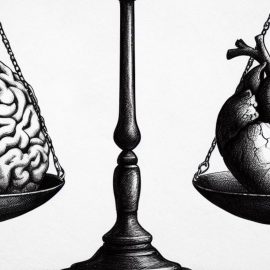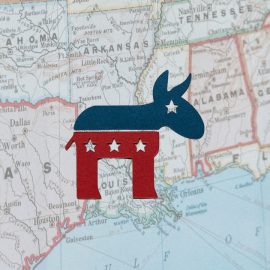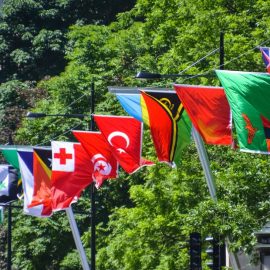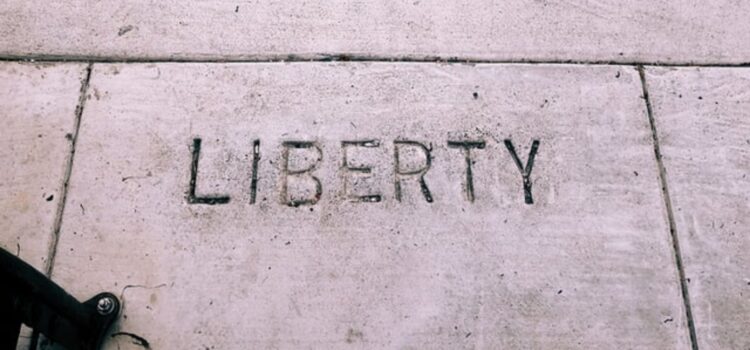
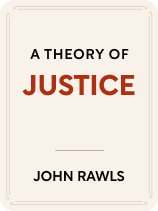
This article is an excerpt from the Shortform book guide to "A Theory of Justice" by John Rawls. Shortform has the world's best summaries and analyses of books you should be reading.
Like this article? Sign up for a free trial here.
What does John Rawls say about basic rights and liberties? Under what circumstances does Rawls’s theory allow for the restriction of individuals’ basic rights and liberties?
According to John Rawls’s theory of justice, everyone in society is entitled to basic equal rights, liberties, and duties. However, Rawls acknowledges that conflicts between different rights and liberties can arise.
Here’s what Rawls says on rights and liberties.
Rawls on Rights and Liberties
John Rawls’s basic liberties, rights, and duties are defined in terms of limits on actions: what people are (or are not) allowed or able to do. He doesn’t define every single right, liberty, and duty that he believes is just, suggesting instead that this is the job of social institutions. However, he does note several important examples: freedom of religion, freedom of speech, the right to equal political participation, and property rights.
Sometimes, different rights and liberties will contradict each other, recognizes Rawls—for example, if someone randomly threatens to kill a stranger on the street, the threatener’s right to free speech conflicts with the stranger’s right to personal safety. To address this conflict, Rawls says representatives in the original position would attach two additional rules to the first principle:
1) A society can restrict certain liberties but only if doing so creates greater liberty for everyone. For example, privacy laws restrict an individual’s liberty to spy on their neighbors, but these laws create a broader right to privacy for everyone in society. In addition, Rawls suggests that this rule makes it unjust for a majority in society to oppress a minority. While that may limit the right of the majority to freely exercise political power, it preserves many more crucial rights and freedoms of the minority.
Rawls acknowledges that in a real society, social and historical circumstances interfere with perfect equality—for example, a historically oppressed group might still struggle to obtain true equality even in a society that believes everyone should have equal rights. Or, a violent political faction might have fewer rights to express their views for the sake of public order. In these cases, Rawls suggests it’s the duty of society to continuously work toward the greatest overall liberty—addressing the largest injustices first and making decisions based on what makes everyone as equal and free as possible.
(Shortform note: To understand what Rawls means by “greater” or “lesser” liberty, we can look to the definition of liberty he uses—specifically, the “triadic relation” definition of liberty created by 20th-century American legal philosopher Gerald C. McCallum, Jr. Under this definition, liberty consists of three components: a subject, limiting conditions, and certain actions or goals. Any statement of liberty, or lack thereof, then involves these three components. For example: John (a subject) is prevented by the law (a limiting condition) from robbing his neighbor (an action). This means that we can understand “greater” liberty as the ability to do a greater number of important things rather than as an abstract state of being.)
2) Some people can have less liberty than others if they consent to it. There are circumstances where people need others to act on their behalf. In this case, it’s just for an individual to entrust some of their liberty in a guardian—so long as the guardian rationally considers what the individual would want if they could act for themselves. For example, a coma patient needs (and presumably wants) someone to act on their behalf. Therefore, it’s just for someone they trust, like a doctor or family member, to temporarily act on their behalf, making decisions based on what they think the coma patient would want.
(Shortform note: Rawls suggests people use reason to act on behalf of others. However, such situations and disagreements that might emerge often depend far more on emotion than they do on reason. For example, in 1998, Terri Schiavo became the center of a complicated legal battle. Schiavo was in a persistent vegetative state with little chance of recovery after suffering cardiac arrest, and while her husband believed she should be taken off of her feeding tube, ending her life, her parents wanted to keep her on life support. Their conflict led to a seven-year legal battle, showing that acting on behalf of someone else can be difficult to resolve or even debate through reason alone.)
| Liberalism and Money in Politics The role of money in politics in liberal societies (like the one Rawls is proposing) is a hotly contested issue, with many different ideas of how or to what degree the government should control the political influence of private wealth. Here are a number of political perspectives on this issue ranging from right to left: Right-wing perspective: Conservatives and libertarians believe that using private wealth to lobby politicians or organize political campaigns is perfectly acceptable and a form of free speech. Therefore, they argue the government shouldn’t restrict the role of private wealth in politics and should work to protect the right of private individuals and corporations to spend as much money on politics as they so choose. Centrist perspective: Center-right and center-left politicians tend to argue that while private money has a place in politics, regulations should be in place to combat corruption (blatantly trading money for political favors) and prevent private individuals from gaining too much influence over government. They work toward moderate restrictions and regulations on the use of private money in politics—things like transparency in campaign financing, maximum limits on individual donations, and public funding for less well-off political campaigns. Rawls seems to fall into this category. Left-wing perspective: Progressives and democratic socialists argue that money translates to political power. Therefore, for everyone to have an equal say in politics, the government has to play a strong role in limiting or eliminating wealth inequality. Many argue for the same regulations as centrists, but they believe these regulations have to exist alongside broader wealth-equality proposals like higher taxes on the rich or stronger labor power. |

———End of Preview———
Like what you just read? Read the rest of the world's best book summary and analysis of John Rawls's "A Theory of Justice" at Shortform.
Here's what you'll find in our full A Theory of Justice summary:
- John Rawls's 1971 theory of justice as fairness
- A breakdown of Rawls's Original Position theory and framework
- The three duties every citizen has in a just society



